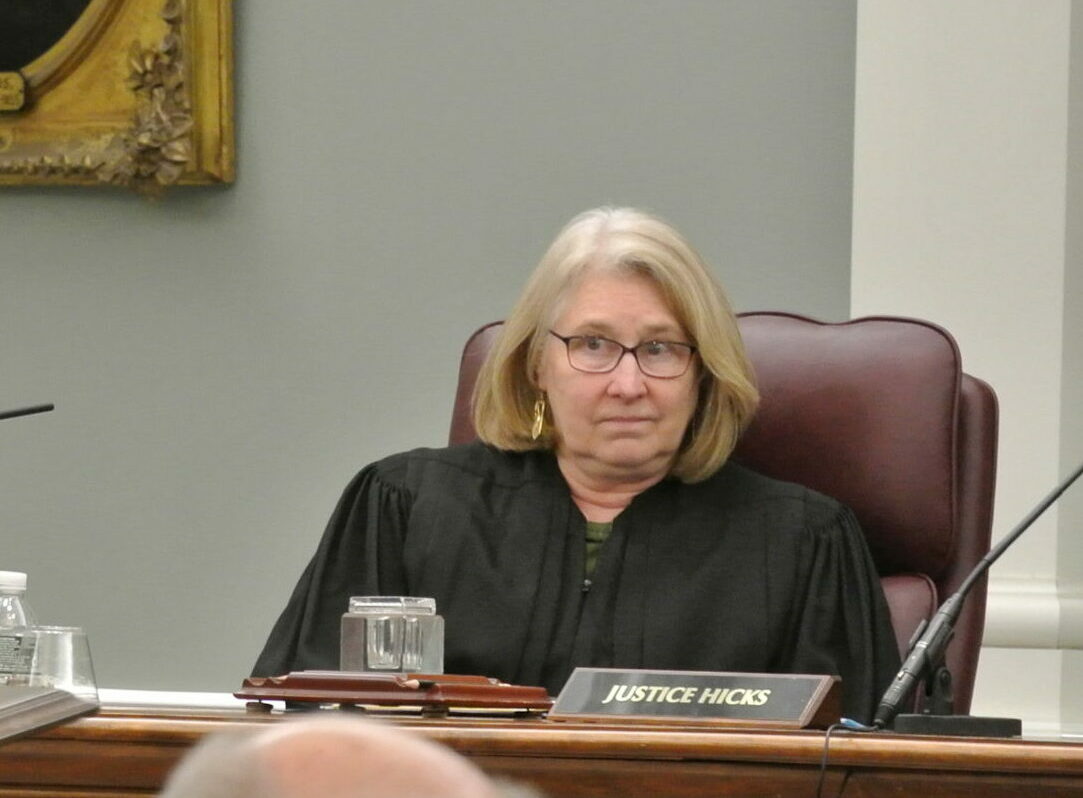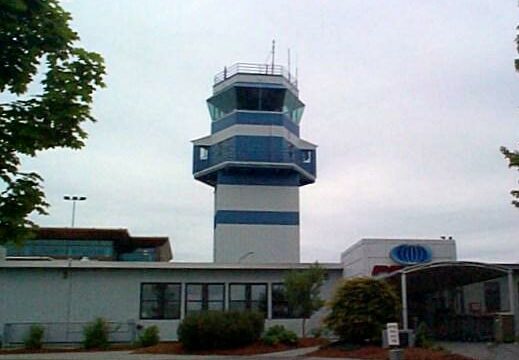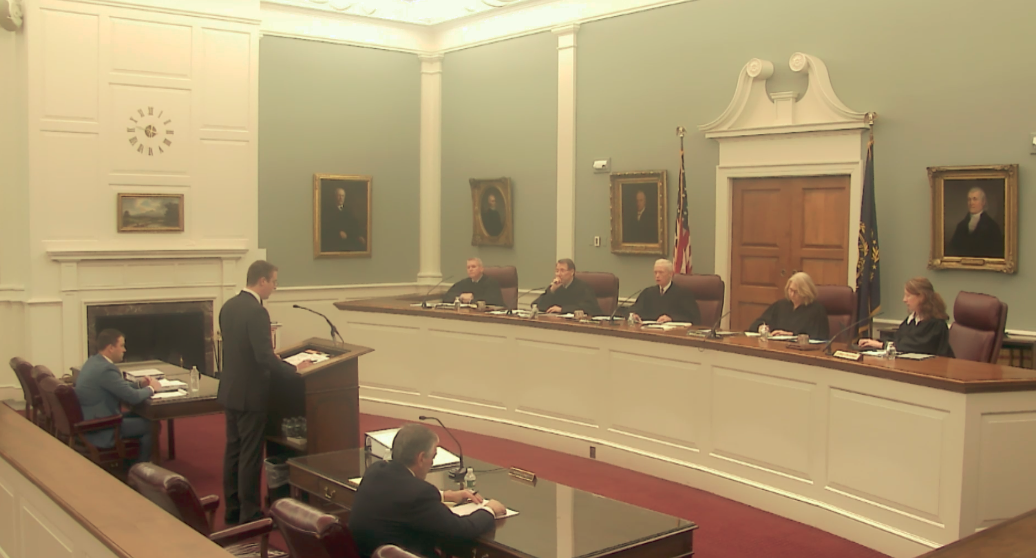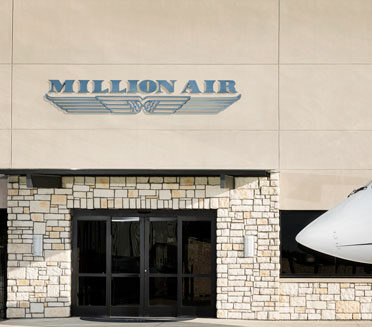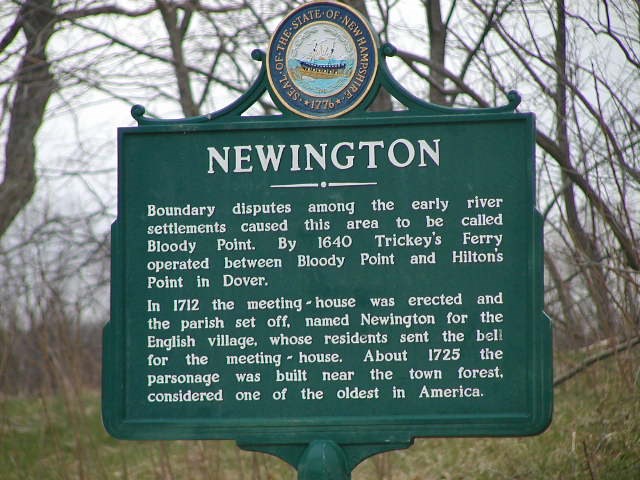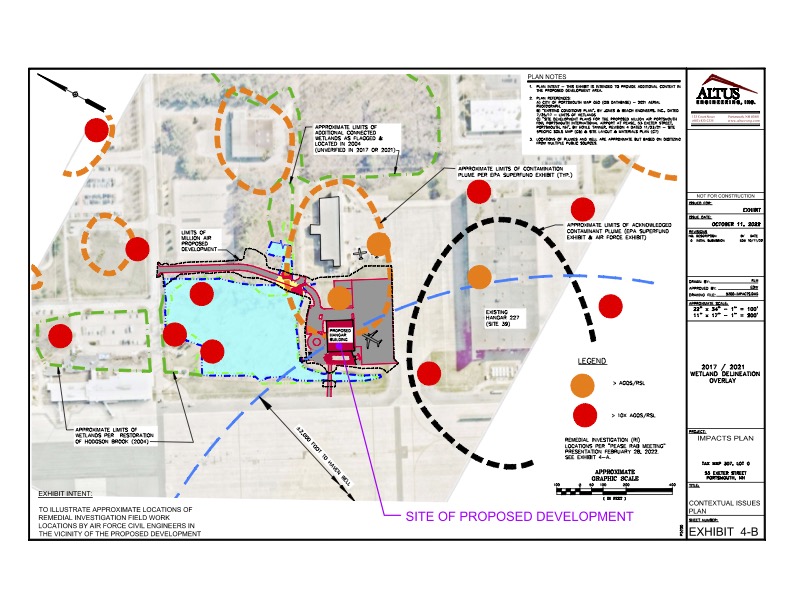Geno Marconi Says No Crime, Wants Case Dismissed
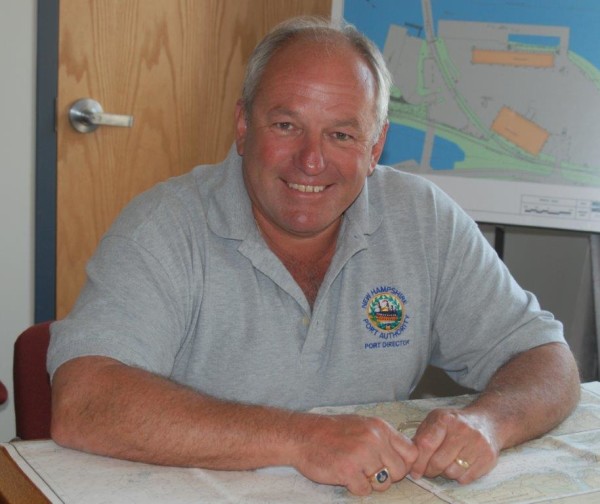
Geno Marconi was just doing his job as New Hampshire’s Ports Director when he shared copies of an unnamed man’s car and boat registrations with Bradley Cook, then the Chair of the Division of Ports and Harbors Advisory Council.
That’s the claim in a flurry of new court filings in Marconi’s criminal case, pushing to have the charges dismissed on the grounds that no crime was committed. His lawyer, Richard Samdperil, also wants evidence of deleted voicemails tossed out, arguing they were obtained without a warrant.
The indictments against Marconi are at the center of a scandal that’s snared his wife, Associate Supreme Court Justice Anna Barbara Hantz-Marconi, as well as former Gov. Chris Sununu, and state Supreme Court Chief Justice Gordon MacDonald. But the question that’s dogged the cases against Marconi, Hantz-Marconi, and Cook is, what did they do?
According to prosecutors, Marconi shared the confidential motor vehicle records of N.L. with Cook and then deleted at least one voicemail from his cell phone after learning about the investigation. N.L. is believed to be Neil Levesque, the vice chair of the Pease Development Authority and someone who clashed with Marconi over his management of Rye Harbor.
But Marconi argues he never shared private information from N.L.’s motor vehicle records. Instead, N.L. gave Marconi copies of his car registration, a relative’s car registration, and boat registration as part of N.L.’s application for a pier use permit, according to the motions filed in court this month.
At the time of N.L.’s application, Marconi was Director of Ports and Harbors and, as such, served as vice chair of the Division of Ports and Harbors Advisory Council. In that role, he worked with the council on all day-to-day business, according to the motions.
“Mr. Marconi’s duties include the general and active supervision and direction over the day-to-day business and affairs of the DPH and its employees, subject to the control of the PDA and its Executive Director,” Samdperil wrote.
Members of the council, like Cook, are supposed to work with Marconi on port operations. There is no indication in the law that council members are barred from seeing records like pier use permits, Samdperil wrote. If the case won’t be dismissed, Samdperil wants the state to prove Marconi knew he was committing a crime given the law authorizing the council to work with him.
“The jury must find that beyond a reasonable doubt that ‘providing records pertaining to N.L. to another individual [Cook]’ was not authorized by [the law],” Samdperil said.
Samdperil also wants the voicemail evidence suppressed, arguing it was taken from Marconi’s private cell phone account that was not listed in the search warrant application. Marconi’s PDA provided cell phone was disconnected in April of last year when he was first placed on leave. But he kept the physical phone and set up a new cell phone account with a new, private cell phone number a few days later, according to court records.
The PDA pressured Marconi to give the phone back as well, since it was legally PDA property, according to court records. Marconi did get a new phone and moved his new cell phone account to the new device, giving the old phone back to the PDA.
A month later, investigators for the New Hampshire Attorney General’s Office obtained a warrant for the old phone, listing his PDA phone number in the warrant application. During the search of the old phone, investigators obtained voicemail records associated with Marconi’s new, private number. Samdperil argues nothing from the new account on the old phone should be allowed.
Assistant Attorney General Joe Fincham responded that the account number does not matter, anything on the phone was fair game.
“Whatever expectation of privacy Defendant may have in the contents associated with his personal phone number, when he placed those contents on the PDA’s physical device, he lost any reasonable expectation of privacy in the contents,” Fincham wrote.
No rulings have yet been made on any of the motions.
Hantz-Marconi is currently on leave from the Supreme Court and charged with trying to get Sununu to intervene on her husband’s behalf. She’s fighting the charges, and argues she did nothing criminal in talking to Sununu about her husband and the impact the pending investigation had on her work.
Sununu seems to agree, according to a transcript of his interview with investigators.
“No, there was no ask, there was nothing ‘Governor, I wish you could do this,’ or there was nothing like that. She was expressing frustration. Clearly not asking me to do anything,” Sununu told investigators. “I, I didn’t get the sense that, I didn’t get the sense that anything was illegal about the conversation.”
According to Hantz-Marconi’s pleadings, MacDonald advised her there was no crime in her talking to Sununu before the June, 2023 meeting.
“I think you can do that – You are a constituent and have concerns,” MacDonald reportedly told Hantz-Marconi.
With an associate justice a defendant, and the chief justice a likely witness, the remaining four members of the state Supreme Court preemptively recused themselves from the case last year.

